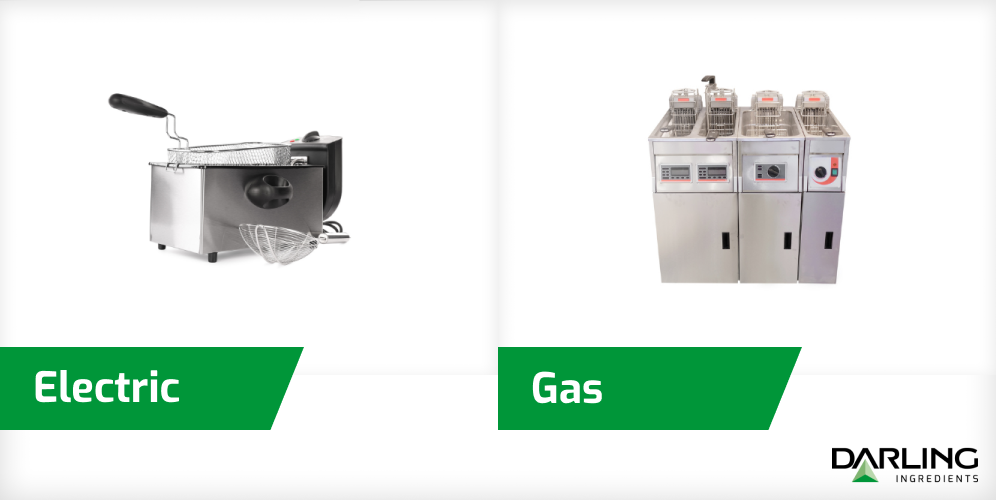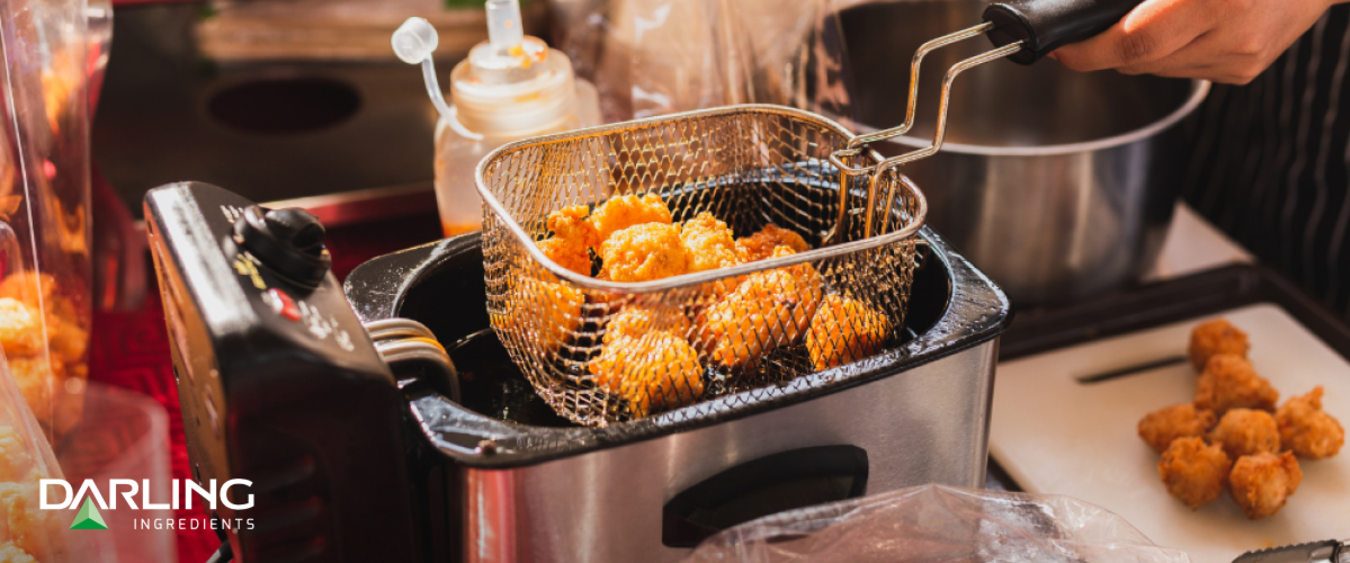Deep fryers can be used to cook more than just your standard fried foods and french fries. Many different types of kitchens utilize them. So, let’s fry up some facts to compare the two types of heating elements and figure out which option will work best for your kitchen.
Is One Better than the Other?
Neither gas nor electric fryers are better than the other one—they simply meet different needs. Both types of fryers have their benefits and drawbacks. The better fryer will be whichever one is best suited to the unique needs of your kitchen.
What to Consider in the Decision Making Process
There are a number of things to consider before pulling the trigger and deciding on a gas or electric deep fryer.

How Much Food Are You Cooking?
A chain fast food restaurant is going to put out a very different volume of food than a small mom and pop sit-down restaurant. The quantity of food being cooked, how much at one time, and how fast it is expected to be served are all factors that influence the decision of which deep fryer is best for your establishment.
Consider the Space You Are In
When it comes to the design of a commercial kitchen, one piece of equipment can take up a significant amount of space. More often, you need to think about where the gas and electric hookups are. Consider the overall layout and all the equipment you intend on fitting in your restaurant kitchen.
What Resources Do You Have?
In terms of both finances and logistics, your resources may play a part in the final decision. The cost up front of buying a gas deep fryer vs an electric one will vary, as well as the price of utilities.
If you opt for a gas deep fryer, you are going to need access to a reliable fuel source.
Clean Up
Whenever there’s cooking, there’s cleaning too, regardless of what type of equipment you use. Cleaning your deep fryer is going to be a necessary step in your back of house operations whether you have an electric fryer or a gas one.
Cooking oil can be an especially messy part of cooking and cleaning up, but it doesn’t have to be with the help of Darling Ingredients. We can provide you with a grease container that fits your needs, pick up your spent cooking oil without going inside your restaurant, and repurpose it into products and resources you can feel good about.
Battle of the Commercial Deep Fryer: Gas vs Electric
So, what are the main differences between gas and electric deep fryers and which one is the best fit for your restaurant kitchen?

Heating Up
When it comes to the fryers heating up to cooking temperature, gas deep fryers heat up to temperature faster.
Point – gas
However, electric fryers have a quicker recovery time than gas, meaning it takes less time for the oil to come back up to temperature after frying. Therefore cooks can wait less time between frying batches of food than if they had a gas fryer.
Point - electric
Utility and Operational Costs
The cost for installation and potential maintenance is more expensive with gas fryers because it requires connecting to a fuel source and all the pipes, connections, and safety equipment that come with that. More parts means more parts to upkeep.
Electric fryers only need an outlet to plug into and then it’s ready to go. They have less parts which means there are less things to maintain and less parts to clean. Fewer costs relating to maintenance, repairs, and energy consumption make electric fryers more cost effective in this way.
Point - electric
Mobility
Typically, it’s harder to install and move gas fryers around because they need to stay connected to the fuel source.
Because electric fryers only need to be plugged into an outlet, they’re easier to move around and provide some flexibility in your kitchen layout.
Point - electric
How Much Can Be Cooked?
Gas fryers are more powerful and have the ability to reach higher temperatures than their electric counterparts. This power and higher temperatures allows for cooking batches of food at a quicker rate and with a nice crispy outside.
Electric fryers don’t have the ability to get the oil temperatures as high as gas fryers. Though they can recover temperature quicker between batches, they are less efficient than gas fryers when it comes to cooking large batches of food.
Point - gas
Whichever Fryer You Choose, What Will You Do With Your Used Cooking Oil?
The truth is, you can’t tally up points to get one universal answer as to which type of fryer is better. The advantages and disadvantages of gas and electric fryers should be weighted differently based on each kitchen, the type of food on the menu, and the physical space of the kitchen itself.
When it comes to taking care of used cooking oil, Darling Ingredients Canada can help.
Cooking oil can be a messy part of commercial cooking. However, with the help of Darling Ingredients Canada and their wide selection of used cooking oil containers, it doesn’t have to be. Once your cooking oil is no longer usable, we collect and recycle it for you so that you and your team can focus on the food and the service.
Reach out today so you don’t have to worry about your used cooking oil tomorrow.
